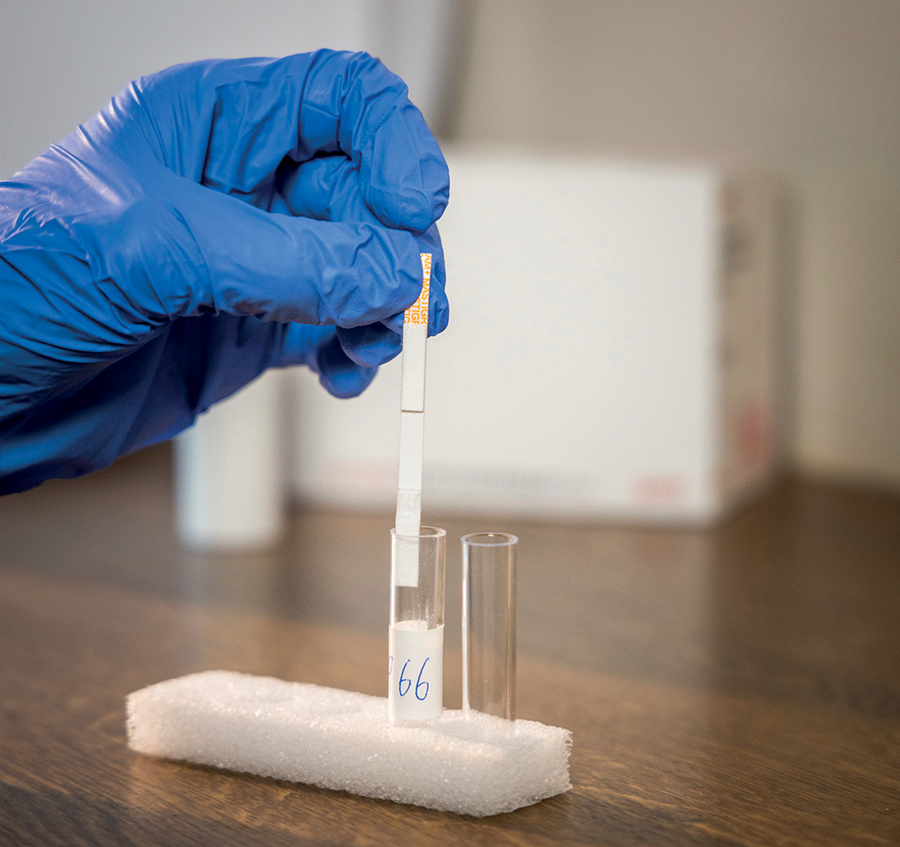Pen-side diagnostics take mastitis treatment to the next level
17th January 2024
Selective treatment of clinical mastitis (STCM) is becoming increasingly popular and offers a range of benefits.

STCM is based on testing at the point of mastitis diagnosis to determine the likely bacterial pathogen involved.
Although all severe or toxic cases should be treated immediately along with a non-steroidal anti-inflammatory (NSAID), an invited review paper published last year (Ellen de Jong et al) concluded that no economic losses or animal welfare issues are expected when adopting a selective vs blanket clinical mastitis treatment protocol in mild to moderate cases.
The idea is that gram-positive mastitis cases are treated with a targeted antibiotic therapy (narrow spectrum), whereas gram-negative bacterial infections, which are most commonly E coli, do not always need to be treated with antibiotics because they are more likely to self-cure. In all cases of clinical mastitis, NSAID treatment should be offered.
At a recent vet meeting organised by Zoetis, vet Dr Jude Roberts from Map of Ag explained:
“Testing is not only important for the responsible use of antibiotics, but targeted antibiotic therapy may also result in an increased proportion of the EMA Category D narrow spectrum antibiotics being used. Targeting mastitis therapy may also help to improve cure rates.
“Selective treatment of clinical mastitis on a farm may reduce the risk of antibiotic milk residue failures, result in fewer cows under milk withdrawal and could reduce overall antibiotic use, which can only go to help the farmers’ bottom line.”
For vets and farmers to be able to target antibiotic treatment, spotting early clinical signs of mastitis and then testing those animals using new, on-farm rapid diagnostic tests is essential.
Clinical signs of mastitis include:
- Clots in milk
- Watery milk
- Blood in milk
- Swollen or hot udder
- Pain in teat or udder
- Sick cow.
Other information available on farm, such as conductivity, yield difference, inbuilt automated milk machine algorithms and California Mastitis testing, may also be used to help spot a suspected mastitis case early.
Zoetis vet Colin Penny said: “Zoetis has developed a rapid on-farm mastitis diagnostic test, Vetscan Mastigram+, which will detect gram-positive mastitis cases in just eight hours – the time between two milkings. This means a farmer can take a milk sample at the morning milking in a suspect cow, and by the afternoon milking, they will know whether gram-positive bacteria are involved and will be able to target treatment to only those with gram-positive results using a narrow spectrum antibiotic.
“Non-gram-positive test results can give the farmer confidence to withhold antibiotic treatment and observe the cow carefully for evidence of self-cure with only NSAID supportive therapy.
“Vetscan Mastigram+ will be a useful tool to support more selective treatment of clinical mastitis as part of a planned mastitis control programme with your vet.”
The test has 99% sensitivity and 100% specificity, allowing farmers to treat the animal within the same day with an accurate targeted approach.
To find out more, speak to your vet or visit Mastigram’s website here
Read more livestock articles here
